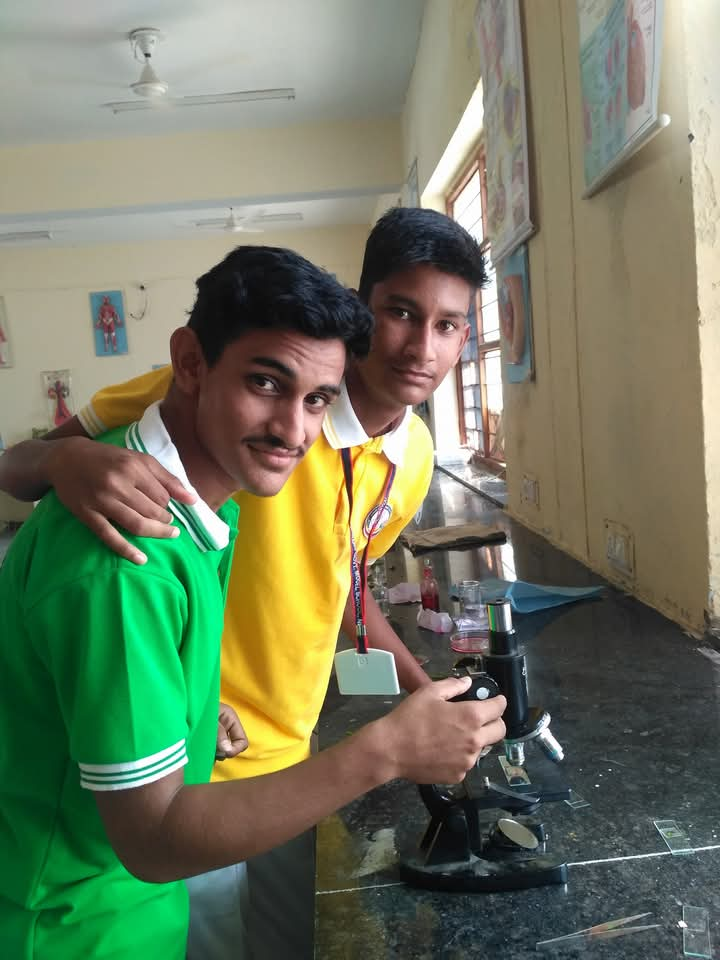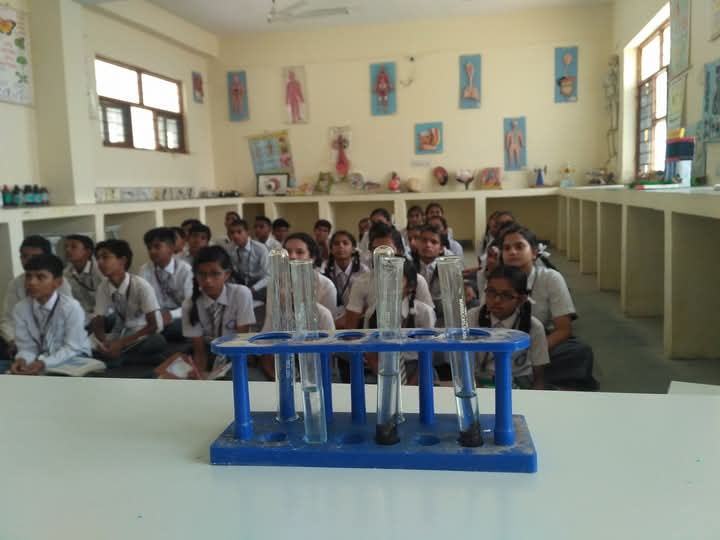Biology lab
plays a crucial role in the scientific learning process. Here are some reasons why biology lab is important:
Our Biology Lab
Our Biology Lab is a state-of-the-art facility designed to provide students with hands-on experience in biological sciences. Equipped with modern equipment and technology, the lab supports interactive learning and experimentation, allowing students to explore the wonders of life and living organisms. From microscopy and cell structure studies to dissection and anatomy of plants and animals, our lab offers a wide range of experiments and activities that foster curiosity, critical thinking, and scientific literacy.
Under the guidance of our experienced instructors, students learn to design, conduct, and analyse experiments, developing essential skills in scientific inquiry, problem-solving, and communication. With a focus on safety and responsible laboratory practices, our lab provides a supportive and inclusive environment for students to engage with biological concepts and principles, preparing them for careers in science, medicine, and beyond.
Our lab is equipped with cutting-edge technology, including microscopes, spectrophotometers, and PCR machines, allowing students to conduct experiments that reflect real-world applications. Students also have access to a variety of biological specimens, including plants, animals, and microorganisms, which enables them to explore the diversity of life on Earth.
Through our Biology Lab, students develop a deeper understanding of biological principles and concepts, as well as essential skills in scientific inquiry, critical thinking, and problem-solving. Our goal is to inspire students to pursue careers in biology and related fields, and to prepare them for the challenges and opportunities of the 21st century.
Lab Facilities
– Microscopes and microscopy equipment
– Dissection and anatomy equipment
– Plant and animal specimens
– Models and charts of biological systems
– Safety equipment and first aid kit
Experiments and Activities
– Microscopy and cell structure studies
– Dissection and anatomy of plants and animals
– Plant and animal physiology experiments
– Ecology and environmental science studies
– Molecular biology experiments (DNA extraction, etc.)
Safety Guidelines
– Wear lab coats and gloves at all times
– Follow proper procedures for handling equipment and chemicals
– Dispose of waste properly
– Report any accidents or injuries to the instructor immediately
Learning Outcomes
– Understand biological concepts and principles
– Develop scientific inquiry and critical thinking skills
– Learn laboratory techniques and safety protocols
– Apply biological concepts to real-world problems



